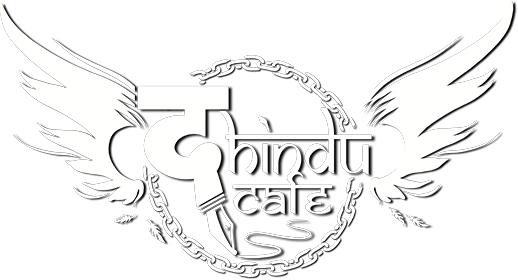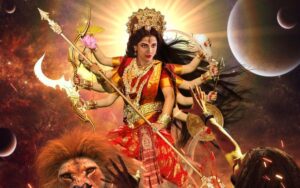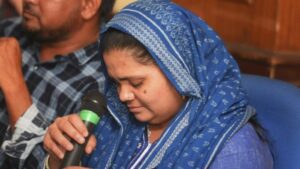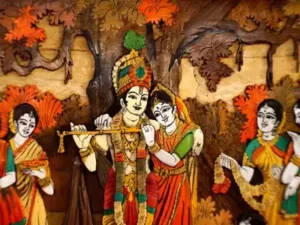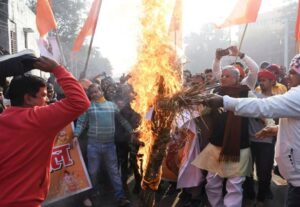“Dhol Ganwar Shudra Pashu Nari Sakal Taadana Ke Adhikari.”
The above selective portion of Ram Charit Manas was used as an excuse to tear up Ramcharit Manas and sell the concept of ‘casteism and misogyny’ being propagated in Hinduism.
The above quoted chaupai is from Sundar Kaand.
Here the Lord of Ocean, Samudra is trying to pacify the anger of Shree Ram, when Shree Ram is ready to ignite his Agneyastra, the firestorm weapon, and vaporise the seas as the Sea was actively acting as an active impediment towards the venture to move on Lanka.
At this stage, the Ocean (Samudra) comes up to him and beseeches him to not unleash incendiary on him, stating that he was only acting as per his nature to NOT act as stable as land but to be an impediment to the traverse of land creatures.
How Valmiki put it was:
“O, beloved Rama! Earth, wind ether, water and light remain fixed in their own nature, resorting to their eternal path. Therefore, I am fathomless and my nature is that it is impossible of being swum across. It becomes unnatural if I am shallow.” He then pleads to Shree Ram to pay attention to him.
The way Tulsidasji put it was:
“Dhol Ganwar Shudra Pashu Nari Sakal Taadana Ke Adhikari.”
The complete verse of the Ocean telling Shree Ram –
प्रभु भल कीन्ह मोहि सिख दीन्ही। मरजादा पुनि तुम्हरी कीन्ही॥ ढोल गँवार सूद्र पसु नारी । सकल ताड़ना के अधिकारी ॥
Prabhu bhal kinhi mohi dinhi
Maryada punhi tumhari kinhi
Dhol Ganwar Shudra Pashu Nari
Sakal Taadana Ke Adhikari
Here the ocean is seeking consideration similar to the attention one would pay to a Dhol (a percussion), Ganwar (a slow witted person), a Shudra (one who follows orders and thus doesn’t have direct agency over his/her actions), Pashu (animals), Women (the logic used by a woman can’t be the same as that of a man), sakal (each) are deserving and entitled (adhikari) towards Taadana (introspection).
Essentially what is being said here is, just as special considerations are given to each of the cases above, similar consideration is also deserved by Samudra (ocean).
A proper explanation on the same is provided by Ravi D Ganesh in Quora.
Meaning (includes continuous interpretation of preceeding and succeeding chaupai/verse, as everything cannot be said and meant in 1 isolated line) –
“It must undoubtedly be in good intentions of the Lord that he must have thought of teaching me a lesson, but at the same time duties, responsibilities and limits is also created by Him only and therefore Lord must also respect what he Himself has created. (मरजादा means limits as well as duties /responsibilities)
I am Samudra, akin to a Dhol (as I can produce waves, but not in a rhythm)
I am akin to a Ganwaar (as I do not have a sharp human mind of an intelligent person)
I am akin to a Shudra (as I provide service to my master)
I am akin to an Animal, Beast (as I do not have self control or emotions or intellect of humans)
I am akin to a Woman (who has a soft heart and is sensitive and who is not stone hearted. Here the focus is on water element of nature. Ocean is not rigid like a stone)
Like all these deserve proper understanding, therefore, I too deserve your understanding. (not your arrows or anger)
Note the use of metaphor by Samudra in comparing himself to the five above discussed characteristics.
“To understand this, one will have to understand Hindi better:
Kanak means Gold, Kanak also means Dhatura (a poisonous fruit). Now only fools would interpret Gold as Dhatura, randomly, without understanding the context.
Hindi language has several such words which have more than 1 meaning. Such words are called “shlesh”.
One meaning of Taadan (ताड़न) is “to beat” which is a verb. Other meaning of Taadna (ताड़ना) is a noun, which means “to be introspective/understood”. Both are absolutely two different things. By the way Tulsidasji also wrote word “Taadna (ताड़ना)” and not “Taadan(ताड़न)”. Sadly no one differentiates on this point also and confuse both to be the same, because they have similar sounding.
Another example is word kaaran (कारण) which means “reason”, and kaarnaa (कारणा) which means “pain/torture”. So just by adding one ‘आ’ matra, the meaning changes significantly. Here also fools would interpret both word to be the same because they sound substantially similar.
Grammatically also one cannot be adhikari (deserve) of a verb, One can only be adhikari of a noun.
That is why dhol/dholak needs to be understood/introspected to play the sur-taal correctly. Merely beating a dholak does not produce correct sur-taal. So how can Tulsidasji suggest go on “beating” a dholak ?
An ignorant/ganwaar also needs to be understood/introspected as without understanding an ignorant person’s mind, he/she cannot be given correct treatment. In real life also people get frustrated with ignorant people and lose their patience, and start calling them names or even start abusing them. (Example: You Fool! Can’t you walk properly.. or You Idiot! Where is your mind..)
But Tulsidasji says one should try to introspect and understand an ignorant person, rather than losing one’s patience.
Shudra/Sevak (English meaning is employees) also needs to be understood and introspected. This is because employers always have a tendency to not have any sympathy for personal respect or personal life of employees and they always think that employees is always wrong. In real life also, employers do not care what problem employee is facing but want them to even come to office on holidays and work. So that is why Sevaks should be understood and introspected, their real problems should be understood, their personal aspirations/respect should also be taken into consideration.
Pashu/Animal/Beastly person should also be understood. Because people have a tendency to attack animals at the drop of a hat. If a cow, goat, sheep or horse is not moving in a correct direction, people start using sticks or whips on them in merciless fashion. If a snake is spotted, that is immediately killed. So to prevent this Tulsidasji says one should understand & introspect animals correctly. If nobody touches a snake, the snake does not bite anybody. If cattles are given proper care and food they listen to their masters. That is why they should be understood correctly.
Last but certainly not the least, a Woman needs to be understood & introspected more than anything else. That is why Tulsidasji says so. The entire essence of Ramayana is how Ramji and Lakshmanaji and the entire Vanar sena and many many others fought and died, to save the respect of 1 woman, Sitaji. How can then all of a sudden Tulsidasji talk about “beating” a woman in one isolated verse?
Another incident which can be highlighted for understanding & introspecting a woman is, people made false allegations on Sitaji, without understanding her, and because of this they forced Ramji to banish her from the kingdom.
Tulsidasji, whose entire prose and poetry in Ramcharitmanas is filled with deepest emotions and sentiments, so much so that he did not even write about the final sad part of Ramayana in which Sitaji was banished, Tulsidasji who loved his wife so much that he hung onto a snake one night (thinking it to be rope) just to climb onto a window and meet his wife when she had to gone to her parent’s home, how can such person even talk about beating a woman. Men from Bharat died for their women. Shree Krishnaji and Pandavas destroyed the entire Kaurav clan, Keechak, Jayadrath, to take revenge of what they did to Draupadi. They never touched women even by their fingertip, forget about beating them.”
Now the question is, IS HINDUISM endorsing maltreatment of the above OR SEEKING SPECIAL AND RELATIVE CONSIDERATION AND CARE for each of the above?
The point is, too few Hindus know their own text to know how they are being assaulted!
The question isn’t what the other Hindu is doing. The question is how much have you actively known and worked and invested with your heritage to understand the gravity of the assault?
